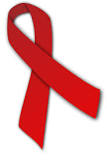LE Monde Africa Ethiopia
In Ethiopia, “die or be raped”, the only choice for thousands
of women during the occupation of the rebel province of
Tigray
Self-help associations estimate that 15% of women contracted HIV during the civil war and fear
an epidemic due to lack of screening and care campaigns.
By Noé Hochet-Bodin (Makalé, Ethiopia, special correspondent)
Published today at 06:00 • Reading 4 min.
abitants were a model in the ght against AIDS in
Ethiopia. The prevalence rate (the number of infected people) had fallen to 1.43%. Then, starting in
November 2020, war hit this mountainous and arid province, the cradle of Ethiopian civilization.
Unbelievably violent, the clashes which took on a strong ethnic dimension would have caused up to
600,000 deaths according to the toll established by the African Union. They were also accompanied
Women displaced in 2022 in the village of Silse, about a hundred kilometers from
Semera, in the Afar region, where the war between the central power and the rebel
province of Tigray has spread. EDUARDO SOTERAS / AFP
by numerous rapes. Regional authorities in Tigray estimate the number of victims of sexual abuse at
120,000.
" Time bomb "
“A grandmother, her daughter and her granddaughter were raped by the same Eritrean soldiers in the
suburb of Shire, in central Tigray, in December 2020,” says Meseret Hadush, misty-eyed, from her oce
in Makalé , the regional capital. These women from three generations are now HIV positive. This is a
tragedy for the future of Tigray. »
The region is still struggling to recover from the civil war. Cripples and broken faces are everywhere in
town. In Makalé, where refugee camps still number in the dozens, begging has become the only
means of subsistence for all these displaced people in their own country. Economic activity is almost
at a standstill and drought has brought hundreds of thousands of Tigrayans to the brink of famine.
Hospitals are struggling to regain their pre-war capacity.
Read also | In Ethiopia, the famine in Tigray, a political battle
“At least we have antiretrovirals,” Fisseha Berhane, head of the ght against AIDS at the regional health
oce, tries to be positive. Because Tigray was sorely lacking during the two years of the conict. “
Because of the blockade, HIV-positive people were taking, at best, expired antiretroviral drugs ,” he says.
The clashes damaged or destroyed 70% of hospitals, according to the organization Médecins Sans
Frontières (MSF). “We have lost track of 9,000 of the 46,000 patients listed before the war ,” notes
Fisseha Berhane, preferring to use the term “disappeared” rather than “dead .



- Tesfa Hiwot HIV Positive Women Association of Tigray



Leave a Reply